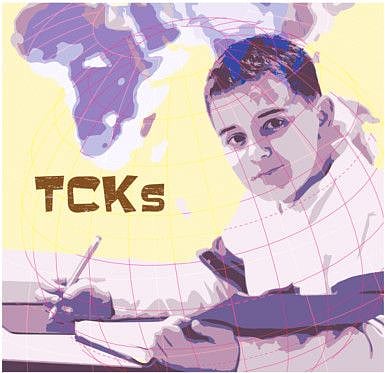Answering the question “Where are you from?” has always been a tricky one for me. If, like myself, you are half-English, half-Dutch and have grown up in Dubai, there is no simple answer. It’s often difficult to explain your origins to people who have never been in a similar situation. Unless your answer is a straightforward home address, you’ll likely have to end up explaining your life story to someone who only wanted to place you in a geographical box in order to find common interests.
‘Third Culture Kids’, or TCKs, was a term invented by an American sociologist Ruth Hill Useem, which was used to describe children who spend a significant portion of their developmental years in a foreign culture because of their parents employment abroad. The result is a merging of their birth culture with their adopted culture, generating a third culture. Recently, globalisation has made TCKs much more common, and that can especially be seen within Dubai. Dubai has an immense expatriate community living harmoniously among its thriving Emirati community, meaning that TCKs are fairly common here.
A strange limbo
One of the greatest challenges for third-culture kids is that the concept of ‘home’ doesn’t mean the same to someone that has grown up outside of their native culture. It is quite easy to feel as though you don’t fit in anywhere, which can leave you in a strange limbo with a lack of a distinct cultural identity. This is exacerbated by an intrinsic need to prove your origins and explain yourself. In some cases, this might even be overlooking parts of your life story in order to make your identity more palatable for others. However, within a community full of people with a similar story, eventually you learn that everyone around you feels the same, and maybe the geographical concept of home just doesn’t apply — a sense of belonging can be formed around relationships instead.
Who is a third culture kid?
■ Third-culture kid is a person who grows up in a culture different from the one in which his or her parents grew up. ■ The term refers is the mixed identity that a child assumes, influenced both by their parents’ culture and the culture in which they are raised. ■ It was coined by American sociologist Ruth Useem, who studied expatriates living in India. ■ Former US President Barack Obama may be the world’s highest-profile third-culture kid. Others include US basketball star Kobe Bryant and actor Viggo Mortensen. — Merriam Webster & Agencies
This also comes at a price though. As a third culture kid, you become accustomed to people leaving, and become frustratingly used to saying goodbyes, even to the closest of friends. Still, it means that your relationship with friends and family become much stronger, as you are still able to sustain meaningful and loving relationships over thousands of miles, seeing them only once or twice a year. Clearly, this is difficult, but it also means that the relationships which survive the distance are incredibly valuable. As challenging as it can sometimes be, there is something so inherently rewarding in eventually seeing those friends in person after periods of time apart; and if you are fortunate enough to do so, nothing equates to the feeling of returning to your family when the holiday season eventually arrives.
Despite the emotional challenges, however, there are a number of advantages that come with being a third culture kid. Obviously, we’re adaptable — being able to move around and thrive within different cultures is a skill we learn from a young age. Intercultural sensitivities, open-mindedness and cultural empathy also comes naturally, and given the increasing interconnectedness of the progressively more globalised world, this is invaluable. Most fundamentally, the increasing numbers of third culture kids globally helps to develop a collective mindset in which people are much more accepting and understanding of different cultures, backgrounds and religions. This is undoubtedly something that is absolutely essential within the world we live in today, and is needed now more than ever.
Still, it is fair to say that third culture kids have an insatiable longing for a home which is constant, and for an identity which is achieved through a sense of belonging. If home for most people is a physical place, it is hard for TCKs to find one. However, maybe this concept of a physical location equating to a home is becoming outdated. Perhaps, given the context of the world, it is important to evolve the definition of home into something which can encompass any people who may not have a clear origins or a clear geographical place on the map. But, even if we TCKs can’t find a place that we belong to entirely, at least we’ve had the wonderful and undoubtable privilege of experiencing and living among so many different cultures. Some people’s lack of a home isn’t down to privilege.
— Nina Mul is a student based in Dubai
Network Links
GN StoreDownload our app
© Al Nisr Publishing LLC 2026. All rights reserved.
